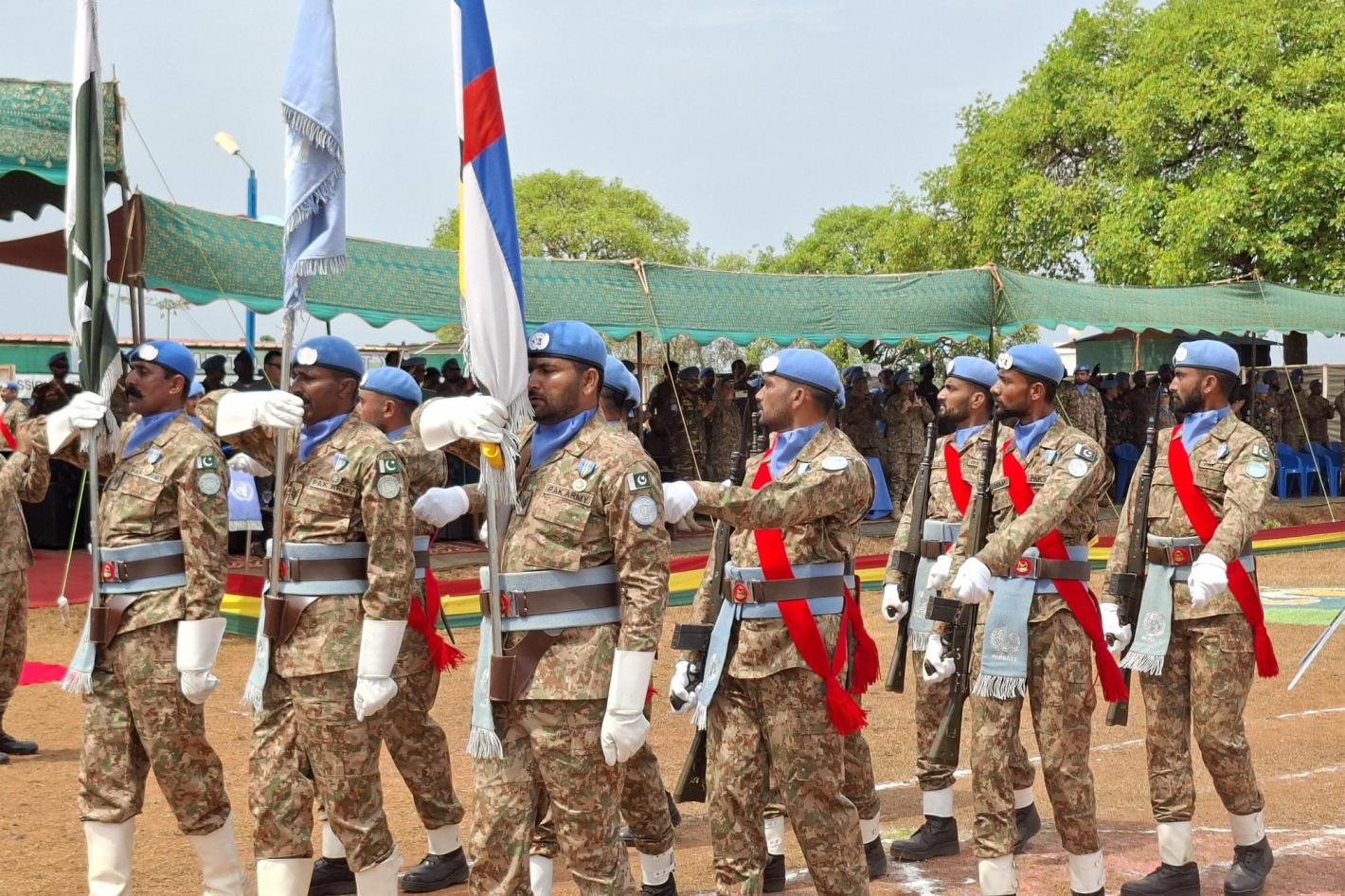Thank you for joining forces to focus on the situation in the Central African Republic. I extend a special welcome to the Head of State of the Transition, Ms. Catherine Samba-Panza. I thank Mediator of the CAR crisis -- President Denis Sassou Nguesso of the Republic of Congo.
I also appreciate the presence of many other Heads of State and Government, the representative of the African Union, the Secretary-General of the Economic Community of Central African States, representatives of members of the Security Council, and other key partners, including the World Bank.
Allow me to also pay tribute to the memory of Ms. Margaret Vogt, my former Special Representative, who passed away this week. She cared deeply for the people of the Central African Republic – and was admired and respected by all who knew her.
One year ago, the Central African Republic plunged into crisis. Brutal sectarian strife, humanitarian suffering and atrocity crimes followed.
I visited the Central African Republic in April. I will never forget the utter devastation and desperation. There has also been some important progress since then.
I salute the African-led peacekeeping operation, MISCA and the French forces under operation Sangaris. On 15 September, MISCA transferred authority to MINUSCA – a tribute to the good collaboration between the United Nations and the African Union.
MINUSCA, along with the French forces and EUFOR-RCA, will seek to build on the relative security improvements.
The political process has been strengthened following the election of Ms. Samba-Panza in January. The cessation of hostilities agreement signed in Brazzaville on 23 July is an important step.
Full implementation is critical – so, too, is an inclusive, broad-based dialogue, supported by regional and international partners.
I encourage all parties to quickly reach a political agreement on governance and key rule of law issues. Accountability for horrendous crimes is central to peace.
There is much work ahead. Many thousands of people remain displaced. Women and children remain exposed to extreme violence and abuse. Thousands of children are still linked with armed groups. We are still far from reconciliation between different communities. A food security crisis looms.
We must mobilize to support economic recovery and stabilization to meet urgent security and humanitarian needs.
For decades, the architecture of the state has been hollowed out by mismanagement, corruption and international neglect.
Rebuilding will take time, but we need to focus now on strengthening public financial management and accountability specifically targeting revenue collection, expenditure controls, public procurement and concession practices.
The partnership between the international community and the Central African Republic must be rooted in mutual accountability.
During my visit to the country, a leader of a woman’s peace group said: “Our social fabric is in shreds. The bonds of our community have broken. There is nothing to connect us. But you represent the world and you are here. Now we know we are a part of the world.”
Before I conclude, I would like to also thank President [Idriss] Deby of Chad for his leadership, and I am taking this opportunity [to pay tribute] for the many losses of brave, young men and women Chad lost. I wish them all the best. We work for peace in their honour.
We must be there for the people of the CAR. Let us pledge to stay the course and help them chart a path to reconstruction, reconciliation, and the rule of law.
We have an opportunity to help – and an obligation to act.
Thank you very much for your commitment.






